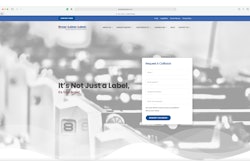It goes without saying that consumer behavior has changed in the wake of COVID-19. As Blake Patterson, MarketHub CEO, explained at the Hemp Industry Daily Conference, cannabis is no exception. Purchasing behavior, which typically takes years to change, changed in mere months after the onset of the pandemic in March 2020.
“People want to get out of the store as fast as possible. The experience is not what it was before COVID-19,” Patterson said. He added that masks can create a bit of tunnel vision as well. Now, the consumer generally has a list and knows what they’re going for instead of wandering the aisles looking for what’s new.
1. Reaching customers
This sudden behavioral change also represents an opportunity for brand owners to talk with retailers and find different ways to engage.
Franny Tacy is Chief Creative Officer and Farmer at Franny's Farmacy and Franny's Farm in North Carolina. She noted that curbside delivery, text campaigns, local ads, and more have become valuable resources.
Customers are calling in to dispensaries and connecting with budtenders. Tacy said there are many more people with anxiety and stress due to COVID-19, all customers in need. “It extends beyond curbside delivery to using Facebook messenger, chatboxes… everything we’re doing now is designed to connect/engage with customers,” she explained.
And will these strategies remain even after COVID-19 for reaching customers? “Absolutely. We’re a national brand but still an owner-operated business. We’ve got a lot of different marketing and sales strategies,” she said. “There are definitely things we’re going to keep in the long-term.”
Patterson agreed. The pandemic has caused businesses to set new best practices, with consumer behavior changes likely to hold for the foreseeable future or next five years. He said the onus is on the brand owner to implement these best practices—even if consumers go back to a browsing mentality— and provide value that the retailer just can’t on their own.
During this time, this extraordinary time we’re in—a pandemic and a social justice revolution—cannabis was deemed essential… I think we should feel so confident and be so free to be bold and actually double down on the opportunity instead of shrinking back… I think it is the perfect springboard for us to establish our dominance and an opportunity to free us to be truly, truly innovative.”
—Dia Simms, CEO at Lobos1707 (Fmr. President, Combs Enterprises)
2. Packaging and traceability hurdles
Franny's Farmacy is vertically integrated, so they take their plant all the way from grow through distribution. Even with this control over their supply chain, they experienced problems with packaging and had to make some modifications, “which people don't understand means new labels, it's an entire process that could cost thousands upon thousands of dollars, just because you run into one little packaging issue,” Tacy said.
Distribution for some brands was also disrupted when many small retailers went out of business in 2020.
Tacy noted that they set their own standards so that everything is very transparent, from the website to the branding to the Certificates of Analysis (COAs). “You can trace that product everywhere it goes,” she said.
But not every brand is so conscious of traceability and quality, so another issue that’s surfaced is retailers are scrambling to find reliable brands because customers are aware and will ask for COAs, product origins, etc.
3. Scaling patiently
While the year was daunting for many small businesses, it’s also important to remember the flipside. When business is good, don’t scale too quickly.
Patterson noted that while his company distributes products (but doesn’t manufacture them), “Our advice to our clients is to make sure that they don't grow too fast.”
He said what inevitably happens is a brand is so thrilled to get the question “Can you fill my 200, 800, or 8,000 stores?” There may be temptation to say, “Of course I can,” but collectively the answer is no. “Maintaining stock is extremely important. You have to plan for your brand to be successful but also have the ability and not fool yourself into thinking that you can fulfill that. It's okay to say 'no' to a retailer to make sure that you're not going to disappoint them down the road because there's no second chance. As far as the manufacturing strategy is concerned, generally we like you to have at least 50% of your on-shelf inventory in back stocks for at least six months.”
Tacy agreed that saying “no” has been an important key to their success.
If you put out a great marketing campaign, be prepared for the orders that follow. She added, “You could be back-ordered for two months, and a back order… that is the kiss of death in business. We have got to make sure that the growth is strategic.
“We find that happens all the time… this amazing deal when the timing is not right. It really has been what has put a lot of small businesses out of business. So it’s better to hang tight and be patient and just grow your business like a plant,” and focus on your roots.
4. Look at pricing parity
Why is it important to create pricing parity between e-commerce and brick and mortar channels?
Tacy said her customers are guaranteed to get the same price across the board everywhere, and that the only place they can get a better deal is in a brick-and-mortar location. “We have franchises, corporate stores, and e-commerce, so this pricing parity is something that is really integrated in every level of our business. And it is so important for the customer to know that no matter what, you will never find our product online less expensive, the only place you could get an additional benefit is going into a brick-and-mortar. It's just a basic business strategy that has got to be implemented.”
Changes in customer behavior have highlighted pricing parity. “This has certainly garnered more attention lately, I think because retailers are clamoring for customers. More people are shopping online than ever before,” said Patterson. “There's so many different points for CBD or any product to be sold online that as a brand, you have to make sure that you have good solid contracts in place to protect yourself, to protect your retailers, and to protect your word when you give that word to the retailers.”


























